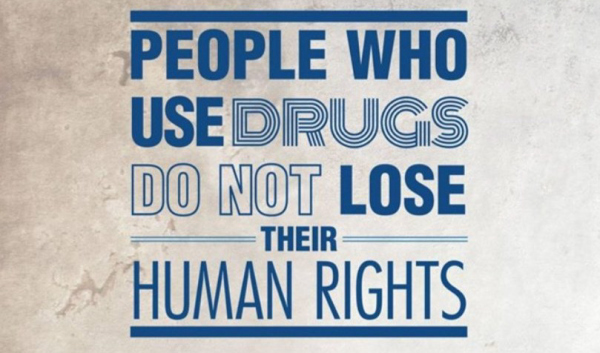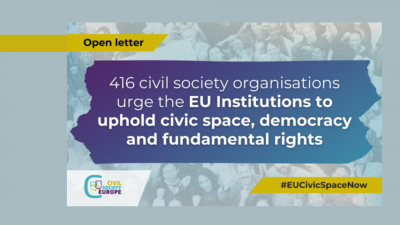
End 'war on drugs' and promote policies rooted in human rights.
The 66th Session of the UN Commission on Narcotic Drugs (CND) ended n Vienna last week. The Helsinki Foundation for Human Rights was an active participant along with numerous other NGOs.
The Foundation co-organized one of the side events to the main session deliberations: "Drug policy & economic, social, and cultural rights: overturning decades of neglect". The recording of the event can be viewed on the channel of the International Drug Policy Consortium we are a member of:
During one of the sessions, Magdalena Dąbkowska, coordinator of our Drug Policy Programme, presented the Foundation's position on the need to include those responsible for health (WHO), HIV/AIDS (UNAIDS), sustainable development (UNDP), women's rights (UN Women) and human rights (Office of the High Commissioner for Human Rights) in drug policy discussions - in addition to the UN branches focusing on the control system of psychoactive substances, and crime.
During a series of meetings between civil society and representatives of UN institutions, numerous questions were asked about their role in promoting effective strategies such as decriminalization of drug use and possession as well as harm reduction. A transcript of these meetings (as well as plenary speeches, negotiation of resolutions contents, and side meetings) is available on the blog hosted directly from Vienna.
This week's highlights certainly included:
- An increase in voices for change, including the first speech in the 66-year history of CND meetings by the High Commissioner for Human Rights, in which Volker Türk criticized the world's ongoing "war on drugs" and called for building policies that protect human rights;
- Bolivia calling the World Health Organization to revise the UN classification of coca leaves. The idea is to remove them from the list of banned substances and thus allow societies (predominantly indigenous communities in the Andes) to legally use a plant that is an important part of their identity and cultural heritage. The Vice president of Colombia spoke one the issue in a similar vein.


